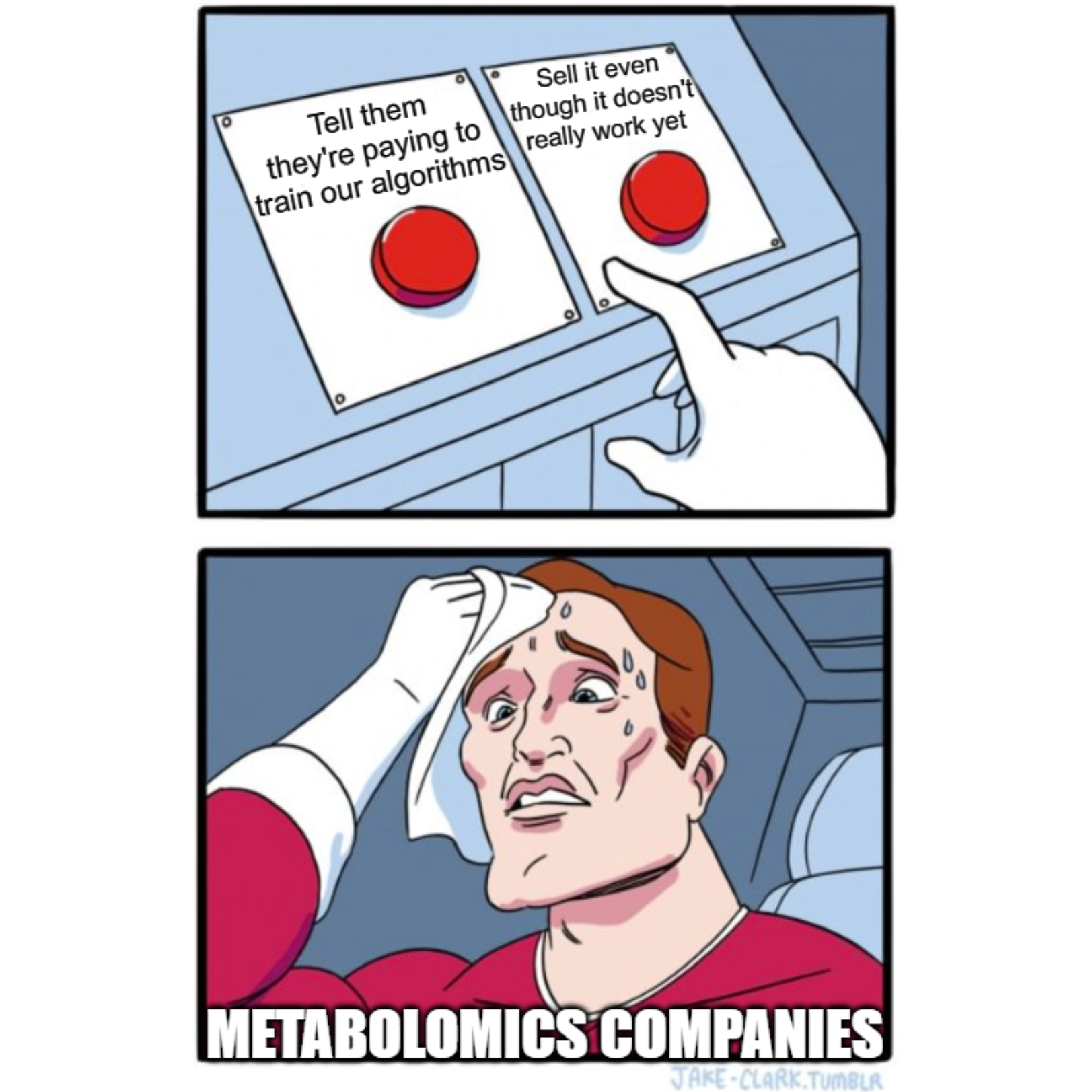Metabolomics: Hype or Heroine?
How does the promise of metabolomics stack up against our current reality? It’s complicated.

One of the great enduring mysteries in biology is how we go from the DNA in our genome to a functional organism.
The simple explanation is that the genome codes for RNAs that code for proteins and those proteins make up our cellular structures or they synthesize those things from raw materials.
'But I thought this was a post about the metabolome, Brian?'
It is!
All of those raw materials, the leftovers, and the waste are called metabolites and it's metabolites that make up the metabolome!
So, in essence, the metabolome is all of the substrates, intermediates and end products of cellular metabolism.
But how does the metabolome help us figure out how the genome creates a functioning human?
Because the signatures of the metabolome actually tell us quite a bit about what proteins the genome has expressed AND what those proteins are doing at any point in time!
Every cell, tissue, and body fluid have their own metabolome and these can change over time as a part of development, aging, or even environmental factors.
Since the metabolome represents all of those cellular activities, it also can be used in a variety of important ways to track health and disease.
There are 2 key clinical uses for metabolomics and one more aspirational use case:
Drug Dosing and Drug Metabolism - Patients and physicians struggle to find the correct therapies or the correct doses of those therapies. This unfortunately becomes an individualized trial and error process. With metabolic profiling we can actually see how the body deals with a drug. Is it processed quickly or does it cause any effect at all? We can use this information on how the body metabolizes a drug to zero in on dosing and response much more quickly than we can by the 'take 3 of these and call me in the morning' method.
Metabolic Disease Diagnosis and Monitoring - metabolic diseases are some of the hardest to diagnose because they often 'look' like other things. This is especially bad if someone is misdiagnosed and placed on an ineffective treatment. This means people can wrongfully be prescribed steroids, or immunosuppressants, etc when the real solution could be a change in diet or supplementation with something their body is improperly metabolizing.
Health and Wellness - generalized screening for health and disease is where all of this gets a little tricky because the metabolic signals are less obvious as they relate to health and non-metabolic disease. This is a bit of a conundrum because to pull out any useful trends you need a lot of data, but what do you tell people in the meantime while you figure out the relevant signatures?
Which means that for widespread use outside of therapeutics and metabolic diseases, there's a bit of work to do to before anyone can provide actionable information to healthy populations.

